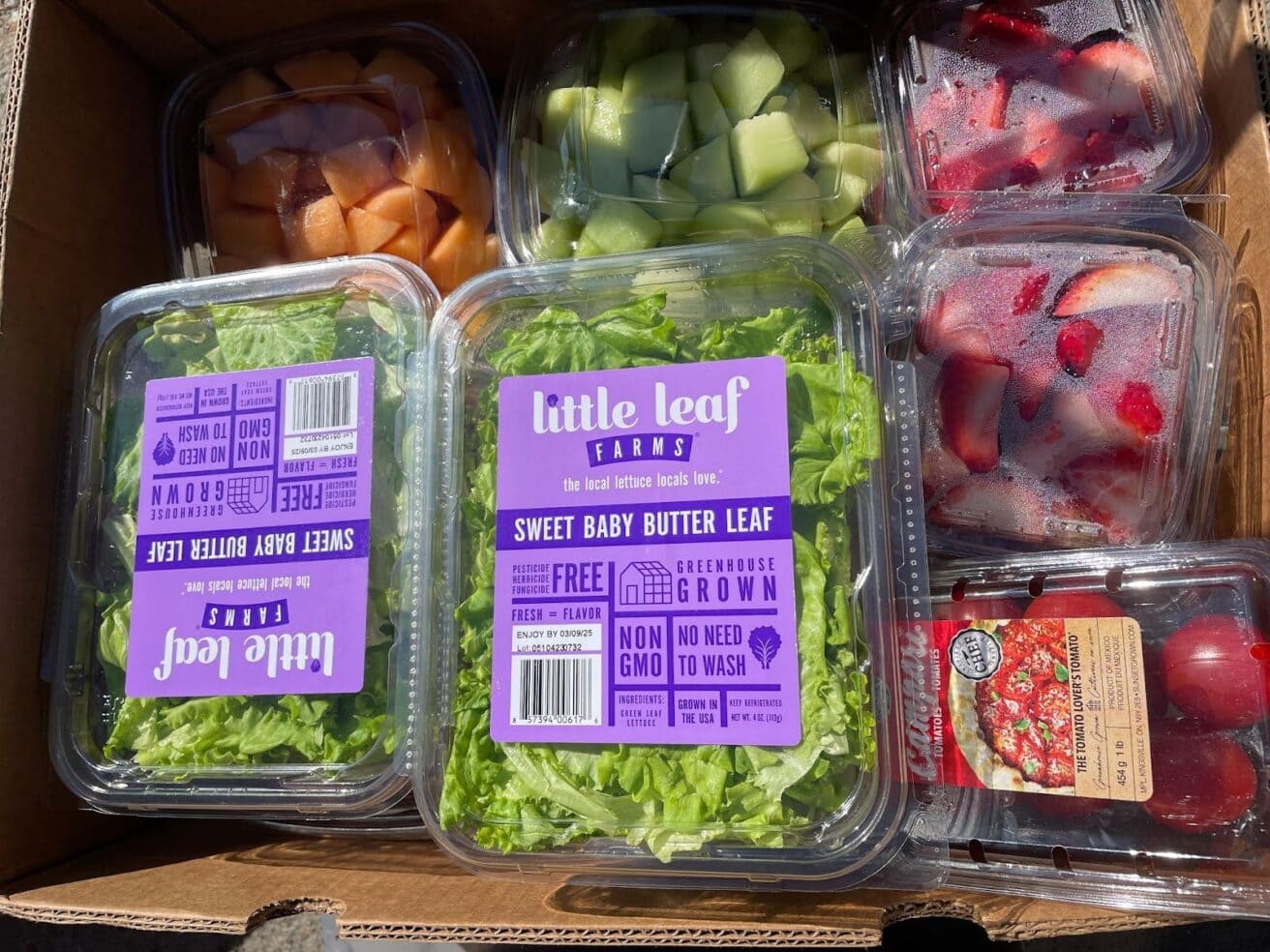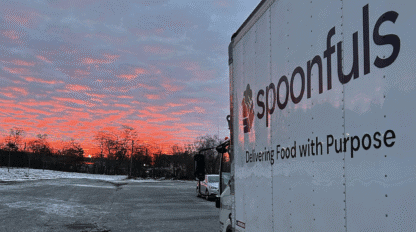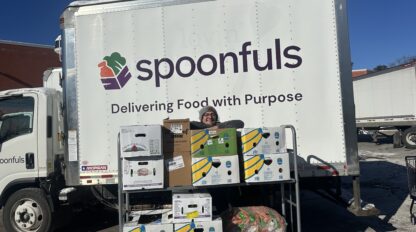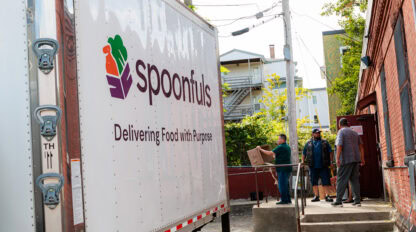The Organics Waste Ban, what it is, and why it matters

One million tons: MassEPA estimates that’s how much food goes to waste here in the Commonwealth each year. This is food that could be donated, composted, or turned into energy instead of being wasted.
But here’s the good news: Thanks to our state’s Commercial Food Material Disposal Ban (the “Organics Waste Ban”), businesses that generate the most waste are also responsible for diverting it from the waste stream. And the ban creates an important opportunity for food recovery, too. By intercepting excess or unsold food while it’s still good to eat, Spoonfuls supports businesses to comply with the ban while ensuring food reaches people who can use it.
So what is the Organics Waste Ban anyway?
The ban says that businesses generating ½ ton of organic waste (or more) per week are responsible for diverting it from the waste stream. This primarily impacts businesses that deal with a lot of food, like grocery stores and wholesalers that, as a result, also deal with a lot of potential waste.
Businesses are required to use sustainable waste diversion methods like:
- Food donation through partnerships with organizations like Spoonfuls, which provide still-good food to programs and people who need it;
- Composting, a great option for food that can no longer be consumed;
- Anaerobic digestion, which converts organic waste to energy resources like power and heat;
- and other alternatives.
Just because food can’t be sold doesn’t mean it isn’t still valuable (literally valuable – and valuable to people, too). For still-good, excess food, the ban creates an opportunity to feed people. That’s why at Spoonfuls, we encourage businesses to prioritize food donation whenever food is still edible. (You can learn more about why businesses end up with good, excess food in our blog, “Why is food available to be recovered?”)
The ban is also in keeping with MassDEP’s 2030 Solid Waste Master Plan, which established goals to reduce organic waste disposal by 30 percent by 2030 and 90 percent by 2050. This is a big deal because food is the #1 material in landfills (EPA), and – when it rots – it produces harmful greenhouse gasses (like methane) that contribute mightily to the climate emergency.

What’s been Spoonfuls’ involvement? Why do we care about it?
In 2014, Spoonfuls collaborated with the MassDEP and their then-Commissioner Cash to inform the original Organics Waste Ban based on the EPA’s Food Recovery Hierarchy (now the EPA’s Wasted Food Scale). Both the hierarchy and the scale prioritize donation (feeding people) ahead of other waste diversion methods.
Since that time, Spoonfuls’ team has continually worked to educate our food donors and the public about the ban, focusing especially on the role of food recovery as the first, best option for still-edible food. People can use it!
“Other than reducing wasted food to begin with, the best use of surplus food that is still edible and safe to serve is to partner with a food recovery organization to deliver that food to those who need it most,” says John Fischer, Deputy Division Director for Solid Waste at MassDEP. “Fortunately for many businesses, partnering with a food recovery organization can also be the best option for their bottom line, as they reduce waste management costs and realize tax benefits.”
Does the ban place a strain on small and medium-sized food businesses?
It shouldn’t.
For example, Spoonfuls recovers food from grocery stores, wholesalers, farms, farmers’ markets, school and corporate cafeterias, and stadiums (some big, some small) free of charge. Partnering with an organization like ours typically represents a cost savings for businesses. They’ll have less to dispose of after they donate what they can. And, because we’re a nonprofit, their food donation is tax-deductible!
“Apart from qualifying for a tax deduction, we saved $35,000 last year in organic waste removal by donating excess food to Spoonfuls,” says Artie Kroese of Roche Bros. Supermarkets. “The overall savings continue to grow. It is good for business and good for our community.”
Plus the Commonwealth offers assistance through RecyclingWorks to help businesses align their practices with the ban.
What does the ban mean for me?
If you’re a business owner whose business produces a lot of food waste, the ban might apply to you. Businesses that fall under the ban and those that haul and process waste are periodically inspected (sometimes unannounced), and MassDEP can take enforcement action to bring a business into compliance. Waste carriers can also refuse to transport from businesses that aren’t in compliance with the ban. Knowing if and how the ban impacts your business is step number one.
But even if the ban doesn’t apply to your business, it’s always a good idea to have a waste diversion plan in place. By avoiding sending food to landfills, your business can have a positive impact on people and our planet. Inquire about partnership with a food recovery organization like Spoonfuls to divert as much good food as you can away from the waste stream and, simultaneously, feed people.
A note for individuals: Even if you’re not a business owner, there’s a role you can play here! A few ideas: You can share information with your network (sharing this blog on social is one idea). And you can take our Food Waste Challenge as a step toward personal action to reduce food waste at home.

Is the ban enough?
Truthfully, no. But it’s a valuable way we prevent good food from going to waste in Massachusetts – and it has been recognized nationally for its effectiveness in a study published in Science Magazine.
Educating around and uplifting the Organics Waste Ban is among Spoonfuls’ Advocacy Priorities because we know it can have an even larger impact. We’re able to leverage the ban in conversations with food donors, legislators, coalition and community members, and more. We know there’s much to learn from the ban, and we can iterate upon what’s working to do even more to curb wasted food!”
What else can I do if I care about the issue of wasted food?
Understanding and speaking up for policy solutions (the kind that create widespread, lasting change) is important. You can:
- Read more about Spoonfuls’ Advocacy
- Subscribe to our emails as one way to stay informed of opportunities to lend your perspective and support.
- Attend an upcoming event to learn more about some of the root causes of waste.


